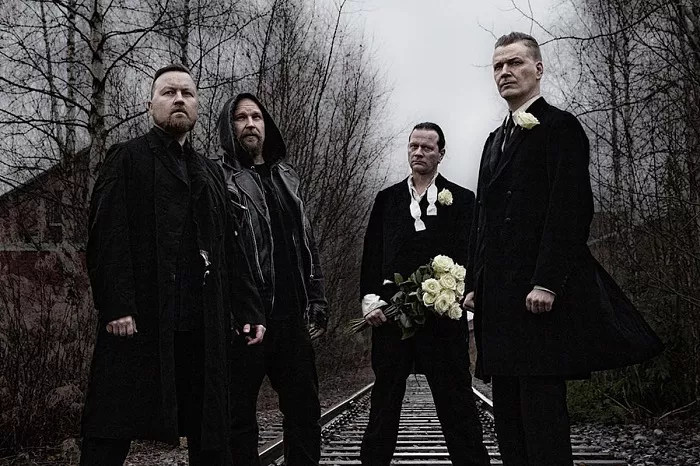Doom Metal, a genre known for its heavy, slow, and melancholic soundscapes, has captivated the hearts of countless music enthusiasts worldwide. In this in-depth exploration, we delve into the enigmatic origins of Doom Metal. From its humble beginnings to the diverse subgenres that have emerged, we will unravel the intricate tapestry of Doom Metal’s history. Join us on this journey through time as we unearth the story of who invented Doom Metal.
The Birth of Doom: A Slow Descent into Darkness
The genesis of Doom Metal can be traced back to the late 1960s and early 1970s. During this period, a seismic shift was occurring in the world of rock music. The prevailing sounds of peace and love were giving way to a darker, more brooding atmosphere. It was in this musical landscape that the seeds of Doom Metal were sown.
Black Sabbath: Pioneers of Doom Metal
The birth of Doom Metal is often attributed to the iconic British band, Black Sabbath. Formed in Birmingham in 1968, Black Sabbath, with their self-titled debut album released in 1970, marked a turning point in the history of rock music. Their signature blend of heavy, distorted guitars, slow tempos, and lyrics exploring themes of despair and darkness laid the foundation for what would become Doom Metal.
It’s essential to understand that while Black Sabbath may not have coined the term “Doom Metal” themselves, their music undeniably embodied its core elements. The songs like “Black Sabbath” and “Hand of Doom” showcased the genre’s characteristic brooding atmosphere, earning them a special place in the annals of Doom Metal history.
Doom Metal’s Underground Cultivation
While Black Sabbath undeniably played a pivotal role in the inception of Doom Metal, they were not the sole contributors to the genre. The 1980s saw the rise of underground bands that further developed and refined the Doom Metal sound.
Candlemass: Epic Doom and the Swedish Connection
One of the most significant developments in Doom Metal during the 1980s came from Sweden. Candlemass, formed in 1984, introduced the subgenre known as Epic Doom. Their debut album, “Epicus Doomicus Metallicus” (1986), featured grandiose, operatic vocals and a penchant for epic storytelling through their lyrics. Candlemass, along with their contemporaries in Sweden, helped to diversify the Doom Metal landscape.
Paradise Lost: The Gothic Touch
The 1990s witnessed yet another transformation of Doom Metal. British band Paradise Lost, with albums like “Gothic” (1991) and “Icon” (1993), introduced a gothic element to the genre. Their incorporation of clean vocals, atmospheric keyboards, and a more melodic approach set them apart and paved the way for the subgenre of Gothic Doom.
My Dying Bride: The Beauty in Desolation
Simultaneously, My Dying Bride, another British band formed in 1990, brought a unique blend of sorrow and beauty to Doom Metal. Albums like “Turn Loose the Swans” (1993) showcased their use of violins and hauntingly poetic lyrics. My Dying Bride’s contribution emphasized the emotional depth and diversity within the genre.
Doom Metal Today: A Tapestry of Subgenres
As Doom Metal continued to evolve, it gave birth to numerous subgenres, each with its own distinct characteristics. Today, the genre has expanded into various forms, making it a rich and diverse musical landscape.
Funeral Doom: An Abyss of Grief
Funeral Doom, perhaps one of the most extreme subgenres of Doom Metal, is characterized by its extremely slow tempos and an overwhelming sense of despair. Bands like Thergothon and Skepticism are credited with pioneering this style, with albums like “Stream from the Heavens” (1994) and “Stormcrowfleet” (1995), respectively.
Stoner Doom: A Psychedelic Journey
Stoner Doom, as the name suggests, incorporates elements of psychedelic rock into the Doom Metal framework. Bands like Sleep and Electric Wizard are celebrated for their fuzzy guitar tones and a more groove-oriented approach. Albums like Sleep’s “Holy Mountain” (1992) and Electric Wizard’s “Dopethrone” (2000) exemplify this subgenre.
Sludge Doom: A Gritty, Aggressive Edge
In contrast to the slow, mournful pace of Funeral Doom, Sludge Doom is characterized by its raw, aggressive sound. Bands like Eyehategod and Crowbar, hailing from the southern United States, are often associated with this subgenre. Albums like Eyehategod’s self-titled release (1992) and Crowbar’s “Odd Fellows Rest” (1998) showcase the heaviness and grit of Sludge Doom.
The International Doom Scene
Doom Metal’s influence transcended borders, leading to the emergence of bands from all corners of the globe. From Russia’s Ahab, known for their nautical-themed Funeral Doom, to Japan’s Church of Misery, who added a dose of true crime to their Stoner Doom, Doom Metal has become a worldwide phenomenon.
Doom Metal’s Influence on Other Genres
Beyond its own subgenres and international reach, Doom Metal has left an indelible mark on various other genres of music. Its slow and heavy sound has inspired artists in the realms of post-metal, drone, and even some elements of progressive rock. Bands like Neurosis and Sunn O))) have incorporated Doom Metal’s sonic palette into their own distinctive styles.
Conclusion
In the grand tapestry of music history, Doom Metal stands as a testament to the power of darkness and melancholy in art. While its birth is often attributed to Black Sabbath, it is crucial to recognize the contributions of countless bands that have shaped and molded the genre over the decades. From the epic soundscapes of Candlemass to the gothic sensibilities of Paradise Lost and the extreme depths of Funeral Doom, Doom Metal has evolved into a multifaceted genre.
As Doom Metal continues to evolve and adapt, it remains a source of inspiration for musicians across the world. Its enduring legacy is a testament to the enduring appeal of heavy, slow, and melancholic music. So, the next time you find yourself enveloped in the somber tones of Doom Metal, remember the rich history and diverse subgenres that have come together to create this genre, and the question of who invented Doom Metal becomes a collective journey through time, sound, and emotion.

